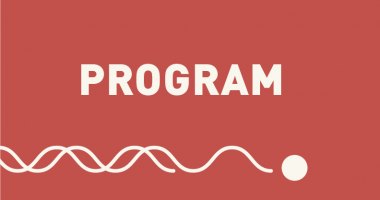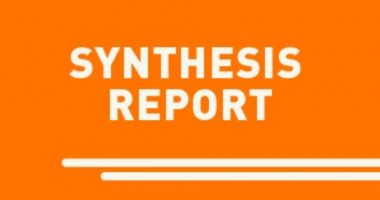The Asia Pacific Action Alliance on Human Resources for Health (AAAH)
In 2005, AAAH, a regional partnership mechanism, was launched by 10 founding member countries in response to international recognition of the need for global and regional action to strengthen country capacity for human resource for health (HRH) planning and management. The AAAH is part of a larger movement to enhance HRH development as articulated in Kampala Declaration and the Agenda for Global Action. The AAAH membership is gradually expanded. From 2005 to the present, membership has increased to 18 countries; 9 from the South East Asia (SEA) region, including Bangladesh, Bhutan, India, Indonesia, Maldives, Myanmar, Nepal, Sri Lanka and Thailand, and 9 from the Western Pacific Region (WPR): Cambodia, China, Fiji, Lao PDR, Mongolia, Papua New Guinea, Philippines, Samoa and Vietnam. AAAH coordinates with partners to strengthen joint efforts in advocating the HRH, provides technical support and augments country-level HRH development through regional collaboration. It aims to ensure sustained commitments addressing HRH needs through research and contribution to policy development.
COVID-19 and health systems
As of November 2022, COVID-19 pandemic has resulted in 642 million infections and 6.6 million mortality worldwide, and it has shown how fragile health systems and lack of universal health coverage, trust in government institutions and social cohesion result in poor control and catastrophic outcome—disproportionately affected the poor and vulnerable population. At the pandemic recovery phase, strengthening the health system and community resilience, especially in low and middle-income countries, is essential in boosting preparedness and capacity to better respond to the next public health emergencies. Pandemic has adverse impacts on SDG, where countries need to bring back on-track their commitments. . Dr. Tedros Adhanom Ghebreyesus, Director-General of the World Health Organization, stated that “The COVID-19 pandemic has shown the importance of data and science to build the back more resilient health systems and equitably accelerate towards our shared global goals.”
The impacts of COVID-19 affect the lives of people in all aspects: physical, mental, social, and financial. COVID-19 among people having some conditions, such as NCD and the elderly, are more vulnerable to complications and death from COVID-19, while disruption of essential care during COVID-19 can lead to mortality of the inability to access life-threatening conditions.3 Since this is a novel and emerging disease, new knowledge, evidence, and new health approaches are needed to manage and control the disease. Collaboration of all health professions are needed. Some health professional regulations are also adapted to enable multi-disciplinary team members to support pandemic responses. However, to tackle these challenges, health policy cannot focus on COVID-19 and hospitals. Primary health care in the community is essential to resilient health systems in response to COVID-19. The primary health workforce plays an important role in delivering health screening and health care services for people in communities during the acute phase of COVID-19, maintaining services for people with chronic conditions, and promoting health promotion and prevention, such as advocating and deliver COVID-19 vaccines, health education, and infection prevention and control. Therefore, the primary care systems and workforce are essential for health systems resilience.
Impacts of COVID-19 on health workers and action plan on health workers
Health workers have faced many challenges from the beginning of COVID-19 pandemic until the present. It has dramatically affected lives and health of health workers. Abdul, Fendt-Newlin, Al-Harahsheh, Campbell reported on “Our duty of care: A global call to action to protect the mental health of health and care workers” in 2022 that prevalence estimates of mental health symptoms among health and care workers during the pandemic range between 23 and 46 percent for anxiety and 20 and 37 percent for depressive symptoms. Health and care workers reported that burnout and moral distress, which affect mental health and wellbeing, and which have long plagued the health workforce, worsened because of the pandemic. Estimates of burnout during the pandemic ranged from 41–52 percent in pooled estimates. Physicians and nurses experienced the highest levels of burnout compared to other health professions. Burnout was associated with increased contact with COVID-19 patients, lack of personal protective equipment (PPE), and work stress. The Action Plan emphasizes the importance of the health and care workforce to the health of populations, to health systems resilience and to economic prosperity and focuses on three key and cross-cutting priority areas: planning and financing, education and employment, and protection and performance.
In May 2022, the Seventy-fifth World Health Assembly adopted the Working for Health 2022–2030 Action Plan as a platform and implementation mechanism for accelerating investments in health and care worker education, skills, jobs, safeguarding and protection. It calls on Member States to implement the Working for Health 2022–2030 Action Plan and integrate its objectives and actions into workforce planning and financing, education and employment, and protection and performance within their health and care workforce strategies, investment plans and programmes at national and subnational levels. International, regional, national and local partners and stakeholders from across the health sector and other relevant sectors are also invited to engage in and support implementation of the Working for Health 2022–2030 Action Plan. This Action Plan will support the achievement of SDGs and universal health coverage.
- Coronavirus disease 2019 pandemic on sustainable development goal achievement. Globalization and Health 2022;18:65. https://globalizationandhealth.biomedcentral.com/articles/10.1186/s12992-022-00861-1
- https://www.who.int/news-room/spotlight/the-impact-of-covid-19-on-global-health-goals
- https://read.oecd-ilibrary.org/view/?ref=1060_1060243-snyxeld1ii&title=Strengthening-the-frontline-How-primary-health-care-helps-health-systems-adapt-during-the-COVID-19-pandemic
- https://2022.wish.org.qa/wp-content/uploads/2022/10/QFJ9259-02-Our-Duty-Of-Care-WEB.pdf
- https://apps.who.int/gb/ebwha/pdf_files/WHA75/A75_R17-en.pdf
Theme of the 12th AAAH Conference 2023
Learning from COVID-19 pandemic: strengthening health workforce and health system resilience
Objectives
General objectives
To update Global HRH policies, future scenario of health workforce contribution to 2030 SDG3 commitment; impacts of COVID-19 on International migration of health workforce; health practitioner regulation and continuing profession education on public health function which support pandemic response, roles of PHC workforce in response to population health needs and public health emergencies, and to share good practice on HRH strategies, implementation, and solutions to address challenges of HRH, population health needs and public health emergencies by AAAH members.
Specific objectives
- To update Global HRH policies, future scenario of health workforce contribution to 2030 SDG3 commitment; impacts of COVID-19 situation on International migration of health workforce;
- To review health practitioner regulation and continuing profession education which aim to strengthen pandemic response;
- To review the roles of PHC workforce in response to population health needs and public health emergencies.
The conference is a main platform that AAAH has organized for learning and sharing knowledge related to HRH and strengthening HRH capacities among the member countries, HRH experts, and international agencies. The conference was held every year between 2006 and 2012, and then every 2 years since 2014. Since the COVID-19 pandemic, the 11th AAAH conference in 2020 had changed the conference format to be the webinar series and more focused on health crises on the theme “Addressing Health Care Workers’ Challenges in Response to COVID-19: sharing experiences and drawing countries’ lessons.”
For the 12th AAA conference, the conference platform will be a side meeting of PMAC conference in 2023 with hybrid approach that include onsite and online conference to gain more opportunities for participants to share their experiences and lesson learned about resiliency of health systems and health workers during post COVID-19.
Venue
Centara Grand & Bangkok Convention Centre at CentralWorld and online (hybrid platform)
Date of Conference
1.5 days between 24 and 25 January 2023
Tuesday
24 January 2023
Session 1: Opening ceremony
09.00-10.30 hrs.
Opening addresses:
- Dr. Poonam Khetrapal Singh, Regional Director of WHO South-East Asia Region
- Dr. Tin Tun, Chairperson of AAAH Steering Committee
AAAH award ceremony: Keynote speech by AAAH awardees
- AAAH Awardee (MD): Dr. Anukul Thaitanundr, Director, Ratchaburi Hospital, Thailand
- AAAH Awardee (Nurse-Midwife): Ms. Chhimi Lhamu, Deputy Nursing Superintendent and Infection Prevention and control focal person, Jigme Dorji Wangchuck National Referral Hospital (JDWNRH), Ministry of Health, Thimphu Bhutan (Pre-record)
- AAAH Awardee (Nurse-Midwife): Ms. Tshering Dema, Deputy Nursing Superintendent, Jigme Dorji Wangchuck National Referral Hospital (JDWNRH), Ministry of Health, Thimphu Bhutan (Pre-record) •
- AAAH Awardee (Non-MD): Mr. BhimPrasad Sapkota, Senior Public Health Administrator, Ministry of Health and Population, Nepal
Keynote speaker:
Global HRH policies and future scenario of health workforce contribution to 2030 SDG3 commitment: trends, challenges, and opportunities
- Dr. James Campbell, WHO HQ
Coffee break 10.30-11.00 hrs.
Session 2: COVID-19: impacts on International migration of health workforce
11.00-12.30 hrs.
Moderator: Dr. Ibadat Dhillon, Regional Advisor (Human Resources for Health) Health System Development, WHO SEARO
Speakers:
- Dr. James Campbell, WHO HQ
- Dave Howarth, Head of International Workforce, Department of Health and Social Care, United Kingdom
Country reflection:
- Dr. Gamege Samantha Prabath Ranasinghe, Director Primary Care Services and Acting Director Training, Representative from Sri Lanka
- Dr. Pretchell P. Tolentino, Director of the DOH Health Human Resource Development Bureau, Philippines, Representative from Philippines
- Dr. Myrna Doumit, Associate Professor at the American University of Beirut (AUB), Representative from Lebanon
Reflection:
- Lluis Vinals Torres, Coordinator, Health Policy and Service Design, WHO WPRO
- Dr. Awad Mataria, Director, Universal Health Coverage/Health Systems, WHO EMRO
Discussion and Q&A
Lunch 12.30-13.30 hrs.
Session 3: Health practitioner regulation and continuing profession education: drawing lessons in supporting pandemic responses
13.30-16.30 hrs.
Chair: Dr. Fethiye Gulin Gedik, Coordinator, Health Workforce, WHO EMRO
Presenters:
- Dr. Ibadat Dhillon, Regional Advisor (Human Resources for Health) Health System Development, WHO SEARO
- Assoc. Prof. Dr. Haruka Sakamoto, Tokyo Women’s Medical University and JICA Ogata Research Institute
Country presentation: Situation of health practitioner regulation and continuing profession education in response to COVID-19 pandemic, challenges and its solution
- Ms drg. Leni Kuswandari, Project Management office, Directorate General of Health Workforce, Indonesia, Representative from Indonesia
- Prof. Rowaida ALMaaitah, HE Professor, the Board Member of …………..JNC Board of Directors; President, Board of Trustees at Yarmouk …………..University, Consultant for Her Royal Highness Princess, Representative from Jordan
- Ms.Sengthida Sivilay Ministry of Health Lao PDR, Representative from LAO PDR
Reflection:
- Prof. James Buchan, WHO CC, UTS Australia
- Dr. Thinakorn Noree, IHPP, Thailand
Discussion and Q& A
Wednesday
25 January 2023
Session 4: Roles of PHC workforce in response to population health needs and public health emergencies: drawing lessons from COVID-19
9.00-10.30 hrs.
Chair: Ms. Sweta Saxena, Health Systems Advisor, U.S. Agency for International Development (USAID)
Presenters:
- Ms. Ariella Camera, Local Capacity and Partnership Advisor Accelerating Primary Health Care Collaborative (APHC-C, USAID)
- Dr. Fethiye Gulin Gedik, Coordinator, Health Workforce, WHO EMRO
Country presentation: Roles of PHC workforce in response to population health needs and public health emergencies
- Dr. Komain Tewthong, Deputy Director, Bureau of Primary Care Support, Office of Permanent Secretary, Ministry of Public Health, Thailand
- Ms. Agnes Pawiong, The Executive Manager Strategic Policy Division, Representative from Papua New Guinea
- Dr. Ahmad Nejatian, Technical Deputy and Director of International Affairs of Undersecretary for Development and Resource Management of the MoHME, Representative from Iran
Reflection:
- Dr. Liaquat Ali, Founder, Pothikrit Institute of Health Studies (PIHS), Bangladesh and expert on SEAR PHC Strategy
- Dr. Elsheikh Badr, DG of Human Resources for Health, president of Sudan Medical Specialty Board, Representative from Sudan
Discussion and Q&A
Coffee break 10.30-10.45 hrs.
Session 5: Accelerate implementation of 2030 milestones
10.45-12.15 hrs.
Chair: Dr. James Campbell, Director, Health Workforce, WHO HQ
Group discussion:
- Priorities and how to accelerate the implementation of unfinished 2020 milestones and 2030 milestones at COVID-19 recovery period
Conference wraps up by AAAH Secretariat:
- Conference wrap-up by Dr. Panarut Wisawatapnimit, AAAH and Faculty of Nursing, Praboromarajonani Institute, Thailand
- Reflection and commitment from countries and partners toward HRH and 2030 milestones
Closing ceremony
12.10-12.30 hrs.
Closing addresses:
Dr.Mayfong Mayxay Vice reactor University of Health Sciences,Ministry of Health Vientiane, LAO PDR
*Bangkok time (UTC+7)








